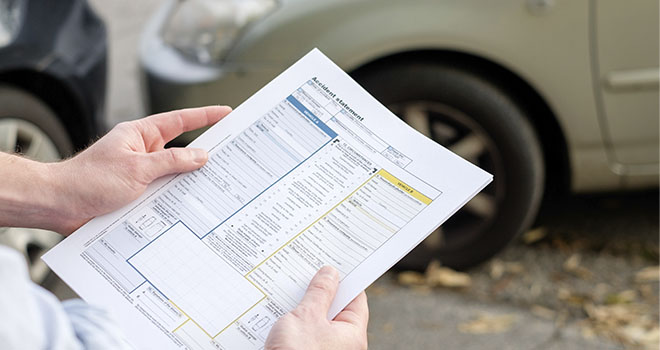“If you can’t explain it simply, you don’t understand it well enough” – a quote by Albert Einstein that came to mind when I read the latest Short-term Ombudsman’s Briefcase. Policy wording and its interpretation at claims time were once again highlighted in various case studies.
Plain language is highlighted as one of the main points in the ‘Treating Customers Fairly’ (TCF) legislation. There are also many other pieces of legislation in South Africa that require the use of plain legal language, terms and conditions. The fine print of insurance contracts have also rocked the boat in many Ombud determinations, especially during the pandemic and once again highlighted the important role of the financial adviser to understand the terminology and fine print of insurance contracts to ensure that their clients are treated fairly.
The case of Mr C and his motor vehicle insurance claim during lockdown
On 3 May 2020 Mr C submitted a motor vehicle insurance claim to the insurer which was rejected on the basis that Mr C contravened the Disaster Management Act Regulations 2020, more specifically Regulation 31 (2) under both the Level 4 and 5 protocols set in place by Government.
According to Mr C the accident occurred just after he had received a permit to return to work on 4 May 2020. He was relocating from one residence to another and was travelling to get his laptop which he needed for his return to work the next day.
In the insurer’s rejection letter sent to Mr C, the insurer said it “makes no admission of liability regarding your claim and reserve all our rights under this policy. We place on record that the above reasons for rejection are based on the policy’s terms and condition and is neither exclusive nor exhaustive of our reasons for rejecting the claim. We, accordingly, reserve the right to entertain the matter more comprehensively at the appropriate time and forum, should the need arise.”
As a result of the claim rejection, Mr C approached OSTI for assistance as he felt that his claim had been unfairly rejected. OSTI requested the insurer to provide a copy of the policy wording and to highlight the relevant policy provision that it relied on to justify its rejection of the claim. OSTI also mentioned that, if the policy provision on which the insurer relies is not material to the loss, then the insurer should consider settling the claim.
The insurer advised that when it investigated the accident, the following was established, which had a material impact on its decision to reject the claim:
- Under Lockdown levels 4 and 5 persons had to remain home and were only allowed to travel under circumstances as published in Gazette 43258 and amendments.
- On the date of the accident, South Africa was observing Alert Level 5 of the lockdown and travelling was severely restricted and only allowed under strict directions.
- Furthermore, the complainant was not performing an essential service, was not moving to a new residence, was not returning to his place of residence before lockdown; and was not moving children nor attending a funeral.
- The complainant was in possession of a work permit which specifically allowed him to travel between his residence in Chiawelo, Soweto to Bryanston (his place of work). However, this permit did not provide for the travelling between Orange Farm to Soweto. As a result, he was in contravention of the Lockdown Regulations.
“The complainant, by merely being on the roads on both 26 April 2020 and 3 May 2020, when the accident event occurred, had increased the insurer’s risk in that, firstly, he was doing so in contravention of both the Level 5 and Level 4 Regulations, respectively. Secondly, if he had complied with the Regulations, it would have invariably reduced the insurer’s risk to the extent that the accident event would not have occurred in the first place as the complainant would not have been on that road or travelling that route at all,” the insurer noted.
The insurer also said the following clause from the policy schedule allowed them to repudiate claims where the insured or driver of the vehicle breaks the law:
7 “If you or the driver driving your car does not have a valid driver’s license, or if you break the law”.
OSTI’s findings
OSTI advised the insurer that its response did not address the materiality of the policy exclusion to the loss itself. In other words, the insurer had not shown that the accident was caused by the insured breaking the law. OSTI considered the matter from an equity perspective and found that there was no causal connection/link between the breach of the law and the accident. As a result, OSTI recommended that the insurer settle the claim.
The insurer confirmed that it would abide by OSTI’S recommendation and agreed to settle Mr C’s claim.
Click here to download the Briefcase that includes similar cases.




WELL DONE OSTI!!!
It is sad that the STIs eagerly take our money but not so eagerly pay our claims !!!
WELL DONE OSTI!!!
It is sad that the STIs eagerly take our money but not so eagerly pay our claims !!!